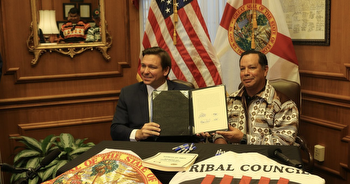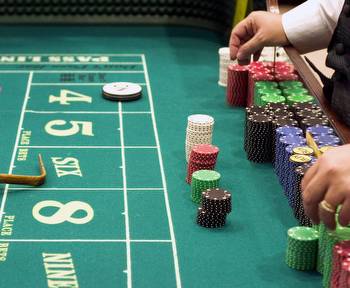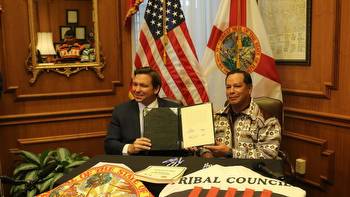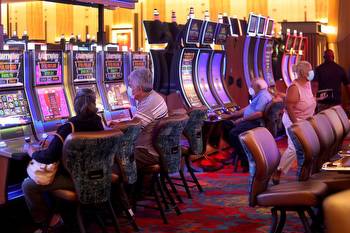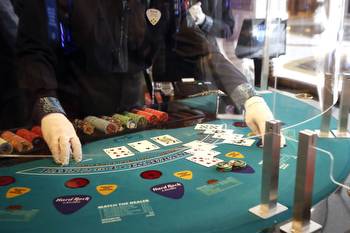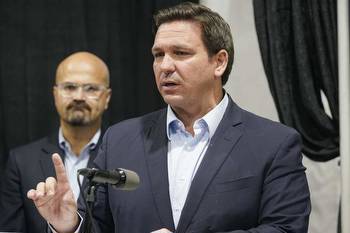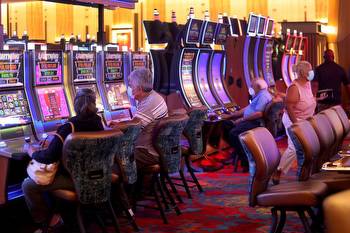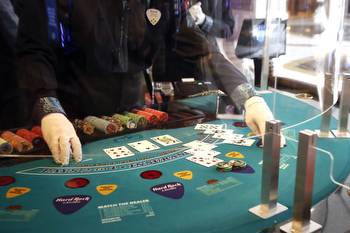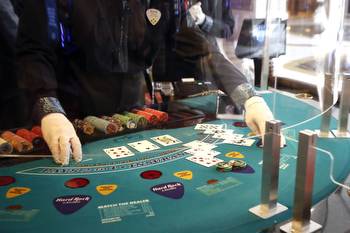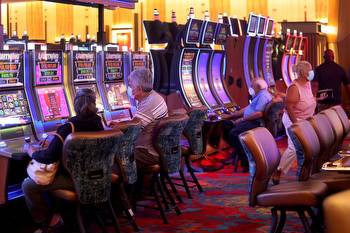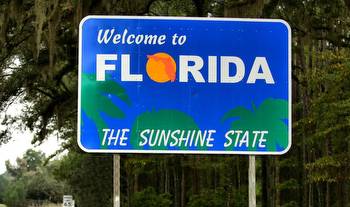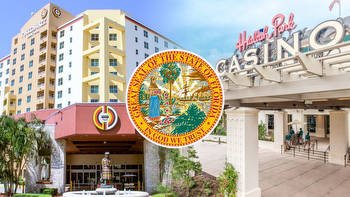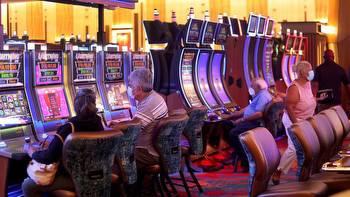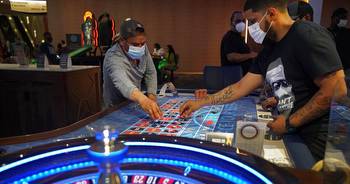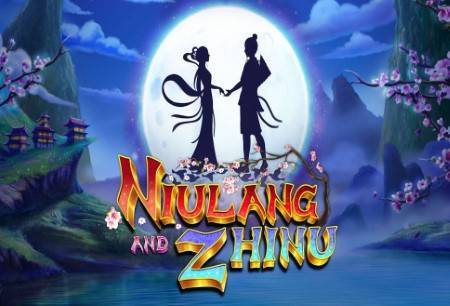First lawsuit filed against Florida gambling deal
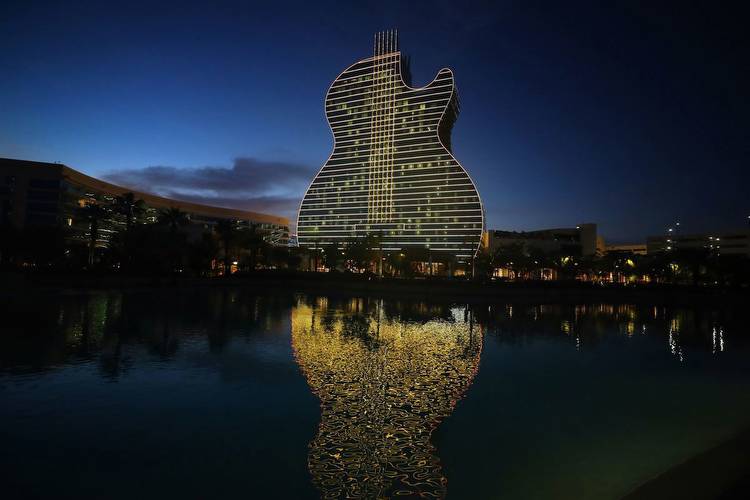
Two pari-mutuels filed the first federal lawsuit against the state’s gambling deal with the Seminole Tribe of Florida. It could be the first of several.
The lawsuit, filed Friday by the owners of Magic City Casino in Miami and Bonita Springs Poker Room, argues that the sports betting deal violates the federal Indian Gaming Regulatory Act, or IGRA, because it would allow Floridians to place bets on sports games from anywhere in the state with their phones or computers.
The deal, approved by the Legislature in May, still needs approval from U.S. Department of the Interior Secretary Deb Haaland who has another month to decide.
Under the 30-year agreement, the Seminoles would be allowed to offer statewide online sports betting, craps androulette in exchange for paying no less than $2.5 billion in revenue shares over the next five years to the state, along with getting to build three new casinos on the reservation near Hollywood.
The deal also says the Seminole Tribe can contract with pari-mutuel facilities to market sports betting. The lawsuit says the facilities would be at a disadvantage because “pari-mutuels that are unable to, or choose not to, enter into a marketing agreement with the tribe are completely shut out of any opportunity to offer sports betting.”
Sports betting is currently only allowed on Indian tribal land, according to the federal Indian Gaming Regulatory Act. The lawsuit argues that the agreement is attempting to circumvent federal law by allowing Floridians to place sports bets without having to physically be on tribal land.
For Floridians ages 21 and older who would want to bet on sport events on their phone or the internet, the deal would consider those bets to be placed on tribal land because the servers that place the wagers are on tribal land, the agreement says.
Other casinos and pari-mutuel facilities could offer sports betting apps of their own, partnering with the Seminole Tribe. Those existing facilities could keep 60% of the revenue from bets while the Seminole Tribe would keep the other 40%.
In the 67-page complaint, the pari-mutuel facilities called that logic “legal fiction.” The lawsuit is seeking an injunction to prevent the deal from moving forward.
“‘Deeming’ the bet to have been placed on Indian lands because the servers are located there contradicts decades of well-established precedent interpreting applicable federal law,” the complaint reads. “Contrary to the legal fiction created by the 2021 Compact and Implementing Law, a bet is placed both where the bettor and the casino are each located.”
Representatives for Magic City Casino and Bonita Springs Poker Room argue in the lawsuit that they will lose millions of dollars as direct competitors of the Seminole Tribe.
“The Florida gaming industry, at large, will also suffer irreparable injury due to a substantial decline in revenues, as the Tribe will be permitted to operate online off-reservation sports betting without having to require patrons be physically present on Indian lands,” the complaint says.
Bob Jarvis, a law professor at Nova Southeastern University, said this is known as the “hub and spoke” system, meaning the server on tribal land is the hub and the bettors across Florida placing bets through the internet are the spokes. A federal judge in California ruled against a tribe that was using this same system for bets on an electronic bingo game, Jarvis said.
Gov. Ron DeSantis and Seminole Tribe Chairman Marcellus Osceola Jr. were taking a big risk by attempting to use this kind of system, Jarvis said. But what differs about Florida’s case from California’s is that state lawmakers approved the deal with this hub and spoke system. There is no issue of state law in Florida’s case, Jarvis said.
“The only issue now is, is this a violation of IGRA?” Jarvis said.
Haaland’s decision has a lot riding on it, Jarvis said. If she approves the deal, other states will likely take Florida’s as a blueprint.
The Seminole Tribe firmly believes the agreement does not violate any state or federal laws, said spokesman Gary Bitner.
“Even though the tribe and the state believe that it does comply with all laws, I think it was sort of expected that there might be legal challenges,” he said.
House Speaker Chris Sprowls, R-Palm Harbor, said lawmakers expected legal challenges and said the agreement would have “icebergs of legal hurdles.”
“You know, reasonable people disagree. Some people have looked at it and said, ‘Hey, I don’t think it’s gonna make it.’ I’ve looked at it. I think it will. The reality is that’s going to be resolved by a court,” Sprowls said.
Jim Allen, CEO of Seminole Gaming, said that the agreement would be beneficial for the state because unregulated, illegal sorts betting is already taking place.
“Our problem is that if you look at the illegal sports betting in online gaming sites, there is billions of dollars that’s occurring on an annual basis already from the citizens of the state of Florida,” Allen said in the interview with the News Service of Florida.
The state and the Seminole Tribe will argue that since the two parties reached a mutually-beneficial agreement, a federal court would have no reason to strike that agreement down. The deal effectively expands the definition of Indian land, Jarvis said.
But it could take years before there is any definitive answer, Jarvis said, because case could rise to the 11th Circuit or the U.S. Supreme Court. The federal judge will have to decide whether to grant a temporary injunction until a definitive answer on the deal is made, what Jarvis said is sure to be a difficult decision.
“Every day that goes by, that’s bets that should have been placed that can never be placed now. I can’t bet on yesterday’s game,” Jarvis said.
Information from the News Service of Florida was used in this report.









